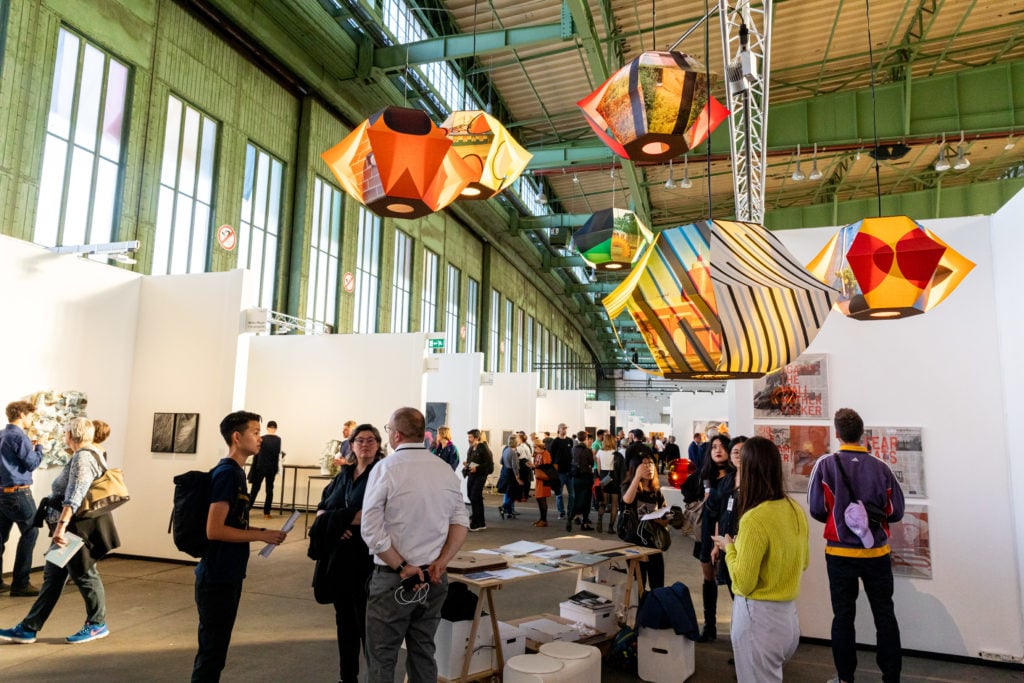Art Fairs
The Organizers of Berlin’s Most Important Art Fair Have Canceled All Future Editions Due to Financial Shortfalls
Koelnmesse, Art Berlin's parent company, has pulled the plug after repeated setbacks.

Koelnmesse, Art Berlin's parent company, has pulled the plug after repeated setbacks.

Kate Brown

In a sudden but not entirely unexpected decision, Koelnmesse, the Cologne-based parent company of the Art Berlin art fair, has decided to call its quits on the city’s main art-industry event.
Berlin’s most prominent art fair evolved out of its previous iteration, Art Berlin Contemporary, and was held for the past three years in the historic Tempelhof airport each September, showing mostly contemporary art. But the fair’s owner which also runs Art Cologne, has decided after months of discussions that the conditions in Berlin are too unpredictable for its liking.
Gerald Böse, CEO of Koelnmesse says that “under the given conditions, we do not currently see any possibility of realizing an event in Berlin that meets our expectations.”
A perfect storm of problems sealed the fair’s fate. Earlier this year, organizers were able to secure Tempelhof airport as a venue only at the last minute, and the agreement did not extend into 2020, which made planning future editions difficult. Nor did the fair make as much money as Koelnmesse had hoped. “Our focus, now more than ever, is the art fair in Cologne,” the company said in a statement.
Koelnmesse acquired Art Berlin in 2017, and the fair was led for the past two years by Maike Cruse, who also directs the robust Berlin Gallery Weekend. The two events are complimentary but independent. Koelnmesse expressed its gratitude to Cruse for her work “under the given conditions.” Cruse declined to comment for this story.
Sources close to the situation say the city of Berlin shoulders some of the blame for the fair’s demise.
Unlike many other European art fairs of its scale, such as Vienna Contemporary or ARCO Madrid, Art Berlin received no support from the state or city. Although the Berlin Senate created an umbrella organization to oversee Berlin Art Week, which took place at the same time as the fair and supported the city’s institutions, no money was filtered to fair organizers. Yet despite its commercial structure, art berlin was an institution in the Berlin arts scene.
“We deeply regret the cancellation of art berlin, which in the form of its predecessor abc art berlin contemporary was one of the co-initiators and an important partner of Berlin Art Week,” says Moritz van Dülmen, CEO of Berlin Kulturprojekte Berlin. “But it wouldn’t be Berlin if a major city-wide event like Berlin Art Week were not constantly changing, as will undoubtedly be the case without art berlin. But in light of the variety of the various partners and subjects being explored, we look forward with great optimism to the next Berlin Art Week 2020.”
In an article in Monopol, art dealer Johann König berated the city for its lack of support of the commercial scene: “I do not understand why politicians find it so difficult to promote the art market as such. Why is art not perceived as enriching society? In addition, the art market brings very wealthy tourists into the city, who spend the night in expensive hotels and eat in good restaurants.”